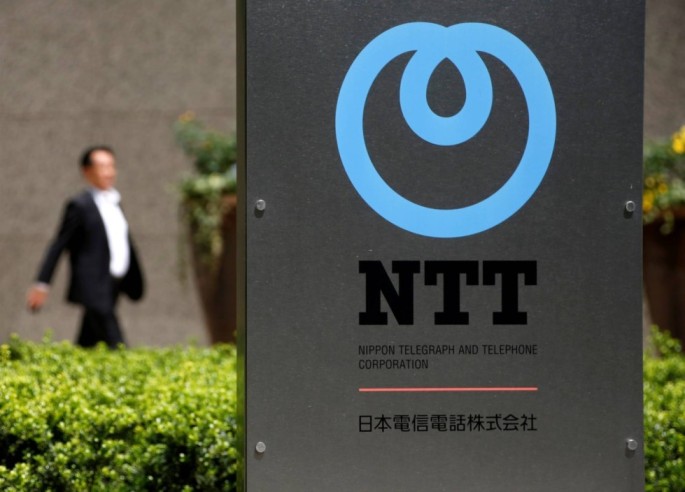Nippon Telegraph and Telephone (NTT) Corporation offers telephone, telegraph, leased circuits, data communication, terminal equipment sales, and other telecommunications facilities. Within Japan, the company offers both local and long-distance telecommunications services.
NTT (Nippon Telegraph and Telephone Corporation) is one of the world’s largest telecommunications carriers, with nearly 310,000 people worldwide. It is selected by up to 88 percent of the top 100 firms in the Fortune Global Business Ranking “Fortune 500,” an annual business journal published in the United States. The corporation was formed in accordance with the NTT Law (Law Concerning Nippon Telegraph and Telephone Corporation, Etc.).
A Small Backstory of NTT
NTT was established in 1952 as a public entity and Japan’s sole telecommunications company. NTT was a significant factor in Japan’s dominance in the computer microchip industry due to its need for increasingly advanced electronics equipment and its willingness to use large financial resources in support of technological research and development. The corporation was designing non-telephone linking technologies for electronic data systems and fiber-optic telecommunications services in the 1980s.

The Company’s Vision
Various social issues have arisen, such as global population growth and resource and water scarcity, as well as a falling birth rate and an aging population in Japan. To address these issues, it has become critical in all situations to advance digital development through the use of ICT (information and communication technology), as suggested in “Society 5.0.”
As “The Value Partner,” NTT Group will strive to address social challenges by advancing digital change through its business practices, using its various management tools and skills, such as research and development, ICT technology, and manpower, and partnering with its partners. NTT Group claims that resolving social problems can help to achieve a wise world through the use of ICT and the United Nations’ sustainable development goals (SDGs).
The skills and programs of NTT Group for tackling social problems have already earned high acclaim in Japan and abroad. Furthermore, in terms of ensuring and running dependable ICT infrastructure, they have high-quality and dependable facilities, such as maintenance and protection dependent on strong networks.
The B2B2X Model
The promotion of the B2B2X model is one of the main pillars of NTT Group’s initiatives aimed at achieving a smart society. The B2B2X model is not a service that NTT Group offers directly to customers, but rather a model in which NTT Group assists service providers in delivering different value-added services to their customers by providing a range of ICT resources such as AI and IoT.
NTT Group has previously collaborated on the B2B2X platform with a number of member companies and local municipalities, but will now step up efforts to promote a model that makes use of digital services and data storage. The Company would increase the number of projects developed as B2B2X model enterprises from 13 in the current fiscal year to 100 by the fiscal year ending March 31, 2022, by these types of initiatives.
NTT Personal Customer Services
The Company implement “personal solutions” customized to each particular customer, headed by NTT DOCOMO, and assist customers in making lifestyle improvements. Rate contracts have been substantially updated to include better value and easy rates, and the company wants to update electronic purchases and personal contents in terms of facilities. Furthermore, NTT wants to enhance connectivity with and individual customers by using AI and big data.

The Company will be able to capture market prospects and minimize business risks by encouraging ESG management that is adequately attentive to “climate,” “social,” and “governance”-related issues, resulting in continued gains in the corporate value.
In terms of distributions, NTT’s simple strategy is to raise dividends steadily. Furthermore, in terms of equity buybacks, the company wants to continue to carry out buybacks in a flexible manner in order to increase resource productivity in the future.
Jun Sawada, The CEO of NTT
Jun Sawada was born on the 30th of July, 1955. He is a Japanese businessman who has served as president and CEO of Nippon Telegraph and Telephone (NTT) since June 2018. Sawada joined NTT in April 1978 and has held a number of senior roles at the firm since then. In June 2018, he took over as CEO after Hiroo Unoura.
NTT Group’s Mission Before and After COVID-19:
The company anticipates two significant changes in our culture and lives. The first would be the institutionalization of remote communications for the purpose of psychological distancing. The second would be a shift in the nature of globalism, as retaining social distance restricts the flow of individuals, goods, and capital. These developments would fuel a movement toward shifting supply chains built on a regional basis around the world to more globally installed supply chains, resulting in a new approach to “glocalization.”